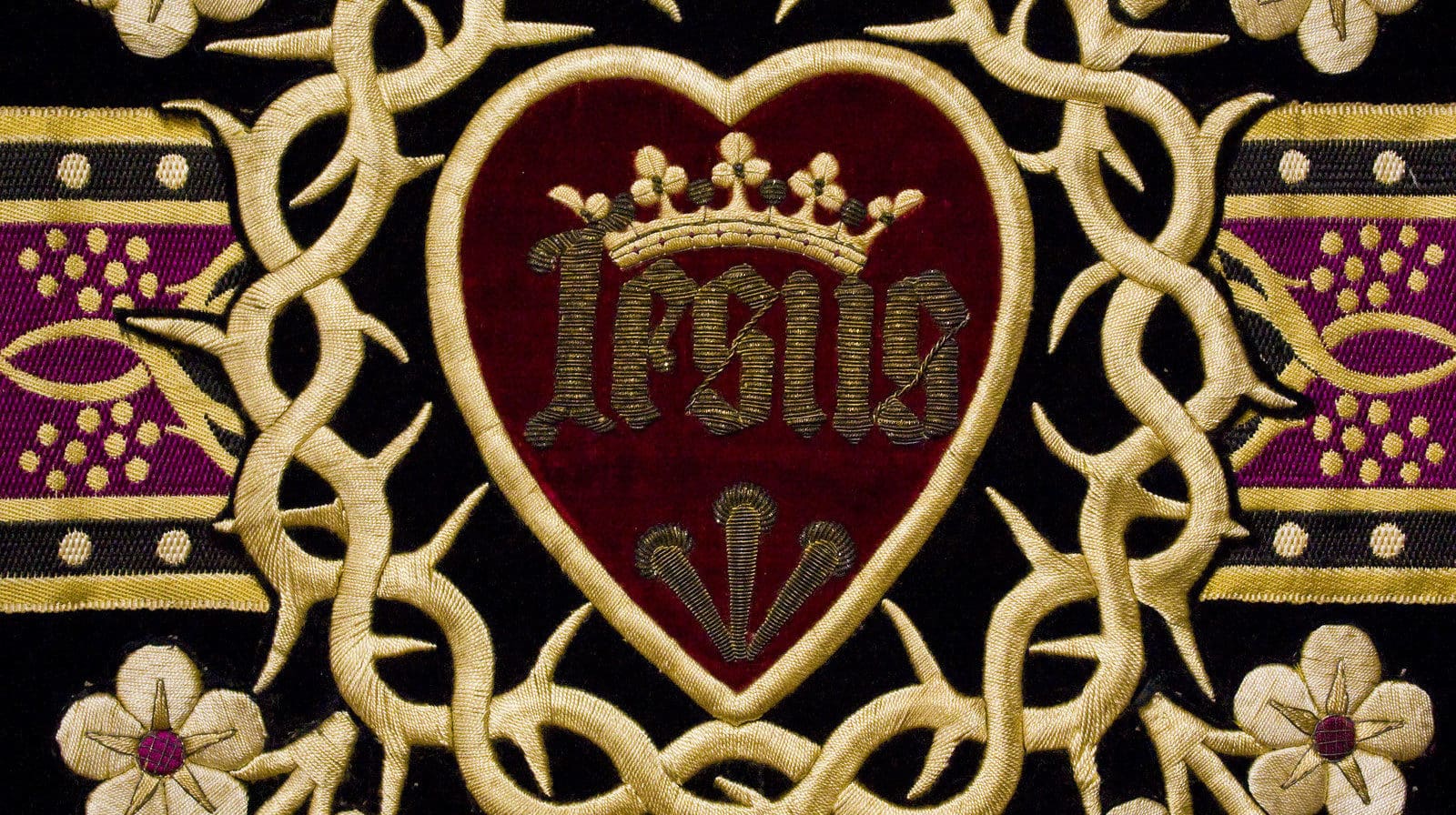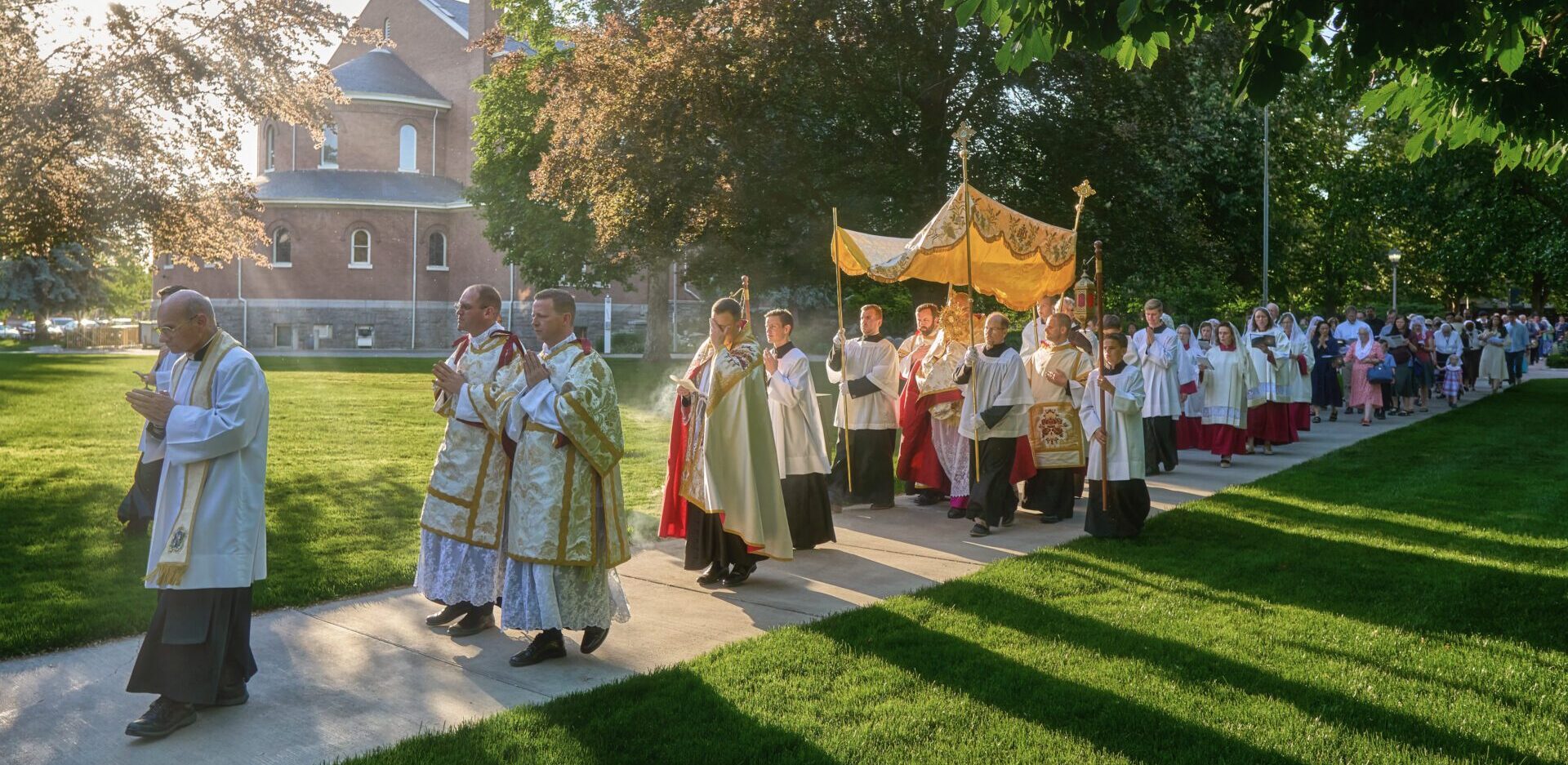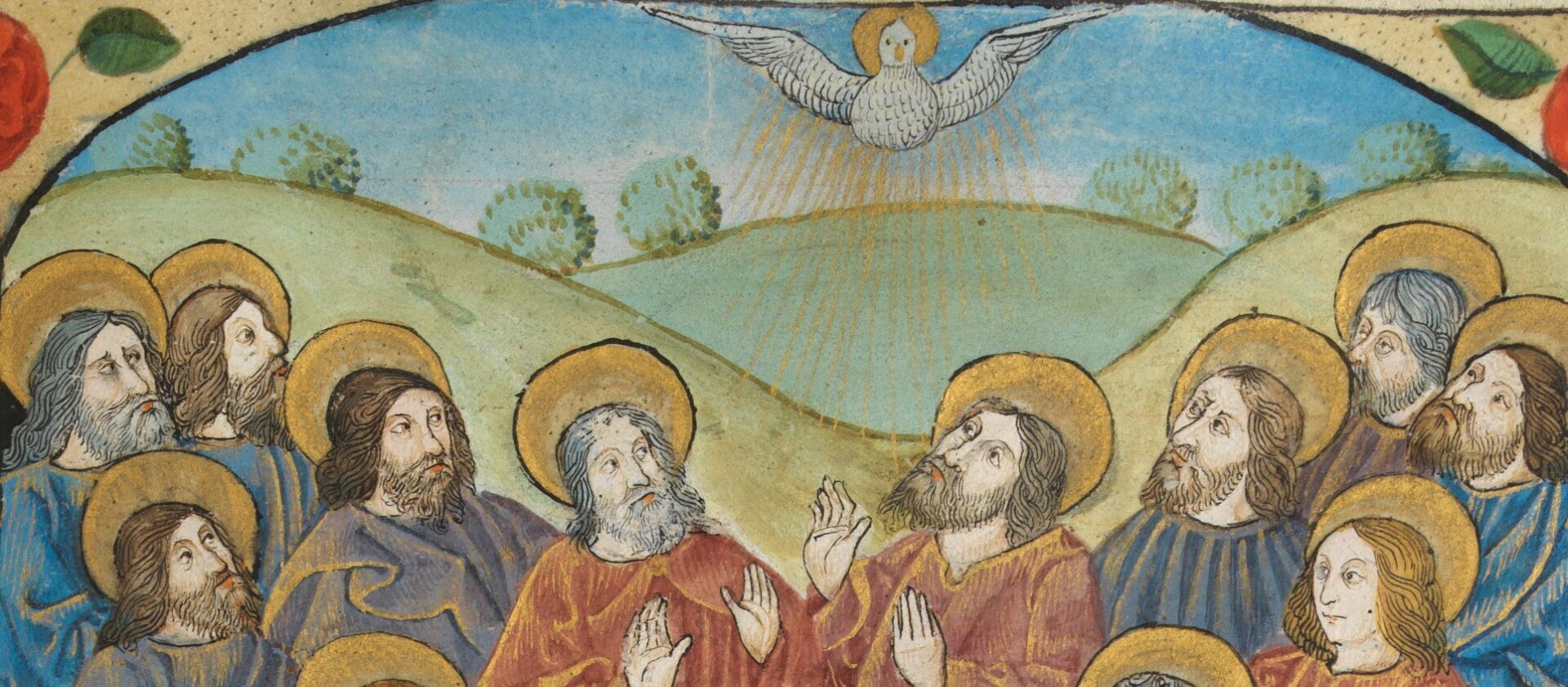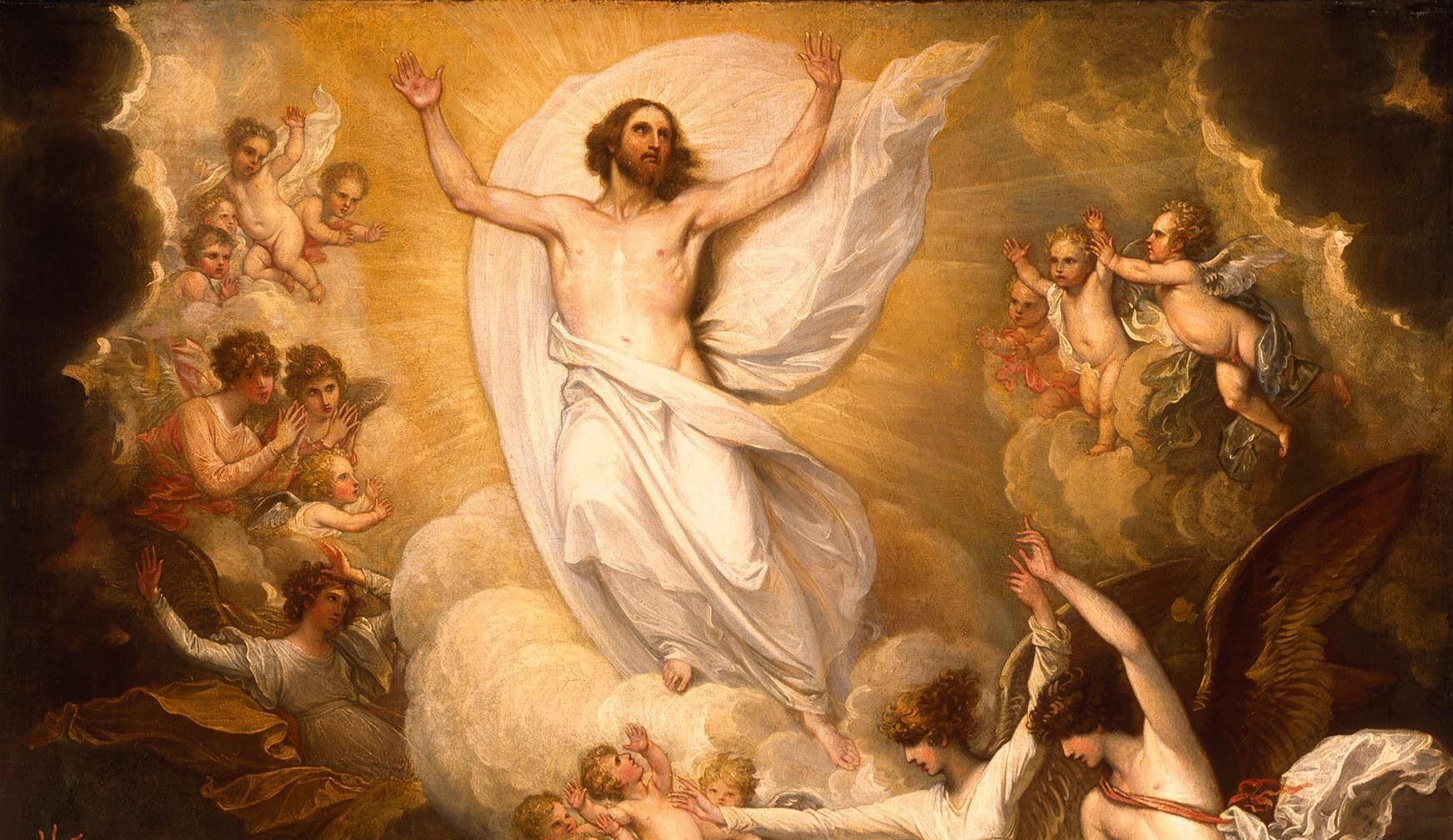When we receive the Body and Blood of Christ, we fix our attention on eternal life. Eternal life is not just an endless extension of this life. Pope Benedict XVI develops this point beautifully in his 2007 encyclical Spe Salvi, writing on Christian hope. He notes how hope drives us towards a life that is not threatened by death, a true life that is full of happiness and yet is something unknown because it is clearly different from the life we have now. He writes: “The term ‘eternal life’ is intended to give a name to this known ‘unknown.’”[1] Drawing from St. Augustine, he then elaborates:
“‘Eternal,’ in fact, suggests to us the idea of something interminable, and this frightens us; ‘life’ makes us think of the life that we know and love and do not want to lose, even though very often it brings more toil than satisfaction, so that while on the one hand we desire it, on the other hand we do not want it. To imagine ourselves outside the temporality that imprisons us and in some way to sense that eternity is not an unending succession of days in the calendar, but something more like the supreme moment of satisfaction, in which totality embraces us and we embrace totality—this we can only attempt. It would be like plunging into the ocean of infinite love, a moment in which time—the before and after—no longer exists. We can only attempt to grasp the idea that such a moment is life in the full sense, a plunging ever anew into the vastness of being, in which we are simply overwhelmed with joy. This is how Jesus expresses it in Saint John’s Gospel: ‘I will see you again and your hearts will rejoice, and no one will take your joy from you’ (16:22).”[2]
Described in this way, we see more clearly what we are tasting when we consume the Body and Blood of Christ. We are sacramentally touching that “supreme moment of satisfaction.” We are dipping our hearts into that “ocean of infinite love.” At that moment our longing expands even more, while at the same time we feel our fragility. How easily we could lose this. We are capable of abandoning that very thing towards which our whole life is so desperately aching. Padre Pio’s beautiful prayer after Communion powerfully expresses this instability of our wavering hearts: “Stay with me, Lord, for it is necessary to have You present so that I do not forget You. You know how easily I abandon You. Stay with me, Lord, because I am weak and I need Your strength, that I may not fall so often.”
It is for the same reason that the Church places the gentle plea custodiat me on the lips of the priest at this precious moment of Holy Communion: “Keep me safe, protect me, be my guardian.” We beg the Lord to stabilize and protect our wavering hearts. How easily we descend from this supreme moment of intimate love in receiving the Body and Blood of our Lord down into the most mundane and even profane thoughts! We know how often our hearts fail to respond with appropriate sentiments to the unbelievable gift that the Lord entrusts to us in this Sacrament Most Holy.
We can find some consolation in imagining the mixed affections of the Apostles at that first Eucharist before Christ died. Surely their hearts were filled with all the natural admixture of human feelings: confusion, uncertainty, intensity, intimacy, fear, hope, and a variety of thoughts ranging from logistics and control to trust and surrender. Perhaps they had anger at the betrayal or envy over their relative position among the Twelve. And we know these vices often mix with hope, faith, attention, love, and tenderness. We priests remain like them, human in the fragility of our hearts, but the Church helps us gently to refocus on what we are doing: “May the Body of Christ keep me safe for eternal life. May the Blood of Christ keep me safe for eternal life.”
In addition to the beauty and intimacy of this moment of Holy Communion, the plea custodiat me also captures the ongoing journey of the Christian life. We need ongoing protection as we make our way through the remainder of the Mass and after Mass strive to lead a Christian life. We need our Guardian to keep us safe in the difficulties that inevitably await us and in the muddy paths that we must navigate. As St. John Henry Newman beautifully expressed it: “Lead kindly light amidst the encircling gloom. Lead Thou me on.” The Body and Blood of Christ are the kindly light that leads us.
We navigate our path by the substantial Presence that God brings into our souls and also by the divine logic his Body and Blood hold before our minds. The only secure path in this life is the way of Eucharistic love. The Body and Blood of Christ keep before us the safe way of the Cross, that is to say, the way of radically self-emptying, self-sacrificing love. We do well to remember at this point the words of our Lord that call us on: “the gate is narrow and the way is hard, that leads to life, and those who find it are few” (Matthew 7:14). He speaks of the gate of Eucharistic love, the way of the Cross. He calls us to follow him on the way that leads to life: “May the Body of Christ keep us safe for eternal life.”
For previous instalments of Father Hicks’s The Quiet that Speaks series, see:
- Introduction to the series and the examination of the prayer Munda cor meum (“Cleanse my heart”)
- Per evangelica dicta (“Through the words of the Gospel”)
- Per huius aquae et vini mysterium (“By the mystery of this water and wine”)
- In spiritu humilitatis (“With humble spirit”)
- Lava me, Domine (“Wash me, O Lord”)
- Haec commixtio (“May this mingling”)
- Domine Jesu Christe (“Lord, Jesus Christ”)
- Perceptio Corporis et Sanguinis tui (“May the Receiving of your Body and Blood”)
Father Boniface Hicks, O.S.B., became a Benedictine monk of St. Vincent Archabbey in Latrobe, PA, in 1998. Since his ordination to the priesthood in 2004, he has provided spiritual direction for many men and women, including married couples, seminarians, consecrated religious, and priests, even as he completed his Ph.D. in computer science at Pennsylvania State University. He became the programming manager and an on-air contributor for We Are One Body Catholic radio in 2010 and has recorded thousands of radio programs on theology and the spiritual life. He has extensive experience as a retreat master for laity, consecrated religious, and priests. He became the Director for Spiritual Formation for St. Vincent Seminary in 2016 and the seminary’s Director of the Institute for Ministry Formation in 2019. Father Boniface has offered many courses on spiritual direction and the spiritual life. He is author of Through the Heart of St. Joseph and, together with fellow Benedictine Father Thomas Acklin, he is author of Spiritual Direction: A Guide for Sharing the Father’s Love and Personal Prayer: A Guide for Receiving the Father’s Love. All of his books have been published by Emmaus Road Publishing.
Notes:
Image Source: AB/Lawrence OP on Flickr



